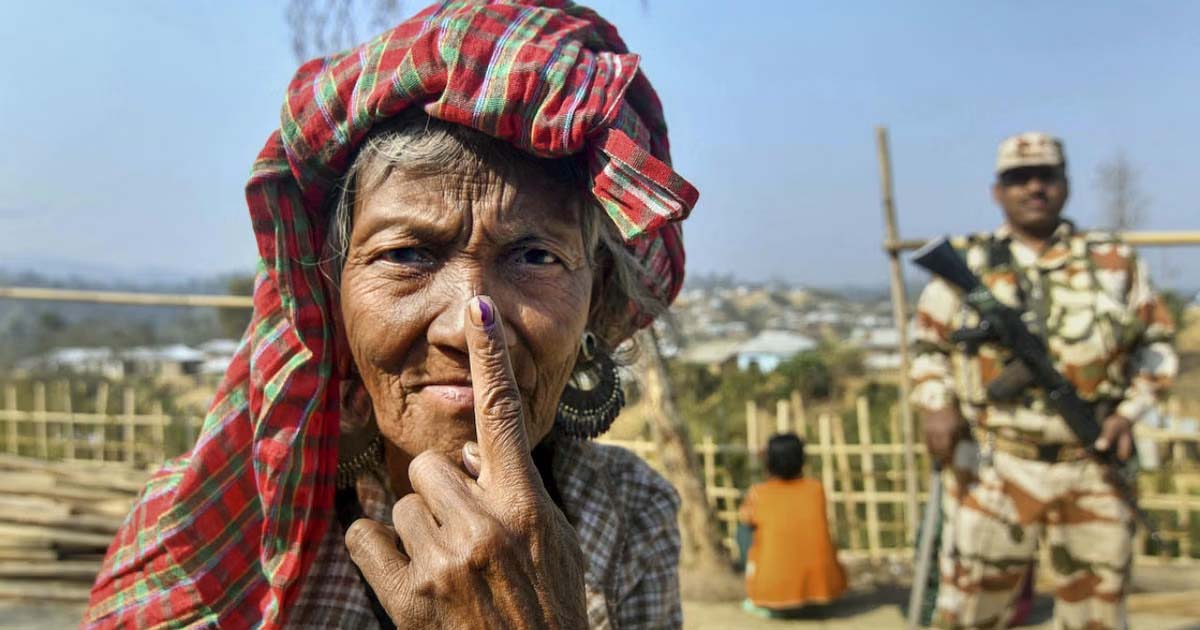Unveiling EC’s ‘Vote From Home’ Option for Disabled Voters
<p>In the heart of New Delhi, Gul Shivadasani, a denizen of the city, perceives the Election Commission’s initiative termed ‘Vote From Home’ for individuals aged 85 and above and those with a disability surpassing 40 percent as a commendable stride. Nevertheless, Shivadasani, despite acknowledging its merit, maintains a preference for exercising his electoral franchise at […]</p>

Unveiling EC’s ‘Vote From Home’ Option for Disabled Voters
In the heart of New Delhi, Gul Shivadasani, a denizen of the city, perceives the Election Commission’s initiative termed ‘Vote From Home’ for individuals aged 85 and above and those with a disability surpassing 40 percent as a commendable stride. Nevertheless, Shivadasani, despite acknowledging its merit, maintains a preference for exercising his electoral franchise at the traditional polling station. To him, voting transcends mere civic obligation; it serves as a gateway to communal engagement.
“Entering the polling booth presents one of the rare opportunities for me to interact with individuals beyond the confines of my domicile,” articulated Shivadasani, whose ventures outside primarily revolve around customary medical assessments or festive congregations. As the Election Commission unveiled the schedule for the Lok Sabha elections, it also introduced the ‘Vote From Home’ initiative, tailored to facilitate the involvement of citizens aged 85 and above and those grappling with significant disabilities in the electoral process.
While applauding the initiative, Shivadasani grapples with a quandary. “It is an admirable initiative, yet I remain inclined towards casting my vote at the polling station,” voiced Shivadasani, echoing sentiments shared by many of his peers. “At home, there exists a prospect of my children swaying my decision. Conversely, at the booth, I am assured of making an independent choice,” he added.
Shivadasani’s ambivalence mirrors the cautious stance adopted by elderly and disabled voters regarding the initiative. Shabnam Begum, a wheelchair user hailing from Aligarh, articulated, “The act of voting embodies a deeply personal choice, and I cherish the physical act of casting my ballot. Additionally, there looms a concern regarding undue influence emanating from such schemes.”
While activists acknowledge the inclination of most disabled individuals and the elderly towards in-person voting, they contend that certain individuals necessitate this provision owing to the severity of their condition. “Nonetheless, heightened efforts towards fostering awareness remain imperative,” iterated Muralidharan, serving as the general secretary of the National Platform for the Rights of the Disabled (NPRD).
However, not everyone shares Shivadasani’s reservations regarding the scheme. Feroza Jahan, a 90-year-old resident of Noida, grapples with paralysis, rendering her incapable of casting her vote for over three decades. “Upon learning about the initiative, I was exhilarated by the prospect of partaking in the electoral process. Although I encountered certain impediments in comprehending the procedure, I have successfully registered and eagerly anticipate the opportunity to exercise my franchise,” she expressed.








